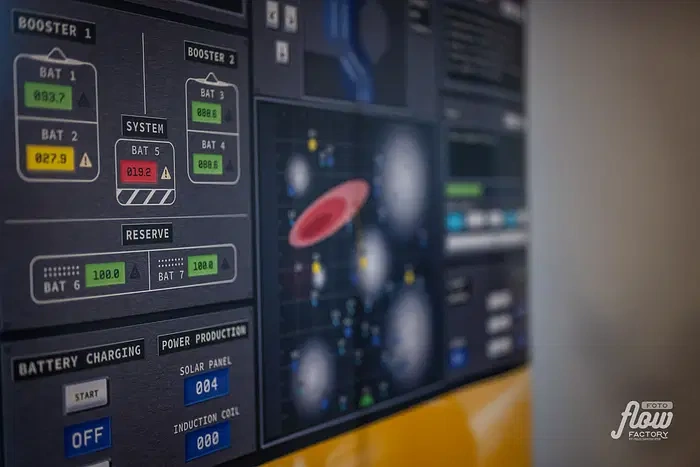“We hit every quality target. And still, the project fell apart.”
We’ve seen this happen more than once.
The kickoff was smooth. The goals were clear, the team was capable, and the plan ticked every box. Everyone was upbeat, coffee cups in hand, ready to deliver.
But by the end, the optimism had drained away. One person quit halfway through, worn down by tension. Another stayed but had quietly switched to autopilot. The final product met all the quality standards, but it landed late, cost more than expected, and left the team feeling like they had survived something rather than achieved something.
No system broke. No budget disappeared. The plan was fine.
It was the people part that came apart.
When Projects Falter, It’s Rarely the Plan
When a project starts to unravel, it’s almost never the process or strategy that’s to blame.
It’s how people react when the pressure builds. Priorities start to clash, small misunderstandings turn into bigger problems, and everyone slips into stress habits no timeline can fix.
That’s when trust starts to fray. Morale dips. Deadlines begin to slide. Research shows that teams with poor dynamics, like low trust and weak communication, suffer a 20 to 36 percent drop in productivity and are 50 percent less likely to meet their deadlines [1][2].
This isn’t just a bad week at work. It’s the start of burnout, disengagement, and turnover. Even those who stay often bring less energy to the job, which only makes things worse.
Why Transferable Skills Matter More Than Ever
In moments like this, the issue isn’t that leaders don’t know a framework. It’s that the situation no longer fits the framework.
The real challenge is holding a team together when everything feels unstable. Someone shuts down. Tension spreads. Decisions stall. The plan is still there, but the cohesion has gone.
This is why transferable, practice-ready skills matter so much. They keep people performing when the environment is unfamiliar, the information is incomplete, and the pressure is rising.
NASA has seen this firsthand. Their research on long-duration space missions shows that task-based training alone doesn’t prepare people for unpredictable challenges[3]. When the checklist stops working, the teams that succeed are the ones who can adapt. They stay calm, communicate clearly, and work together when no one has all the answers.
Those same skills keep projects moving here on Earth. Skills like:
- Staying composed and decisive when things feel uncertain, giving the team stability.
- Noticing stress and disengagement early, before it derails performance.
- Making grounded, collaborative decisions even when the facts are incomplete.
- Defusing tension and repairing trust, so small issues don’t turn into lasting divides.
- Communicating and motivating effectively, so everyone stays engaged.
- Reflecting and adapting in real time, so lessons stick and performance improves.
- Practising in a domain-agnostic environment, so these skills become habits, not theory, ready to use anywhere.
These aren’t soft extras. They’re the skills that keep teams productive and resilient when predictability disappears.
Where These Skills Take Shape
This is what GemaSim was designed for.
Using a spaceflight simulation, something no one has experience in, GemaSim drops leaders and teams into a high-pressure, immersive scenario where they can’t fall back on industry expertise or the usual routines. The focus is on how they work together, make decisions, manage stress, and keep the group moving forward.
And because it’s a simulation, mistakes don’t come with real-world consequences. People can test new approaches, see what happens, reflect, and try again. That’s how these skills stop being theory and start becoming second nature. And it works. Studies show that people retain up to 75% more when they actually practise something instead of just hearing about it, especially when that practice is tied to reflection and real-time feedback[4].
The Extra Layer That Makes the Difference
Beyond teamwork and decision-making, GemaSim helps participants and trainers see what’s driving behaviour beneath the surface. Stress patterns, motivational needs, and subtle shifts in communication all become visible, giving teams a clearer picture of how they actually work together.
We weave in psychological insights, like PCM and Compassionate Accountability, to help teams understand these patterns, but without turning the session into a lecture on models. The focus stays on making the team more effective, not adding theory to their heads.
What comes out is more than just another training exercise. It’s a way to practise the agility, trust, and behavioural awareness that leaders and teams need to thrive, no matter what the world throws at them.
Connection Over Control
The leaders who succeed when things get unpredictable aren’t the ones gripping the plan the hardest. They’re the ones who can keep people calm, engaged, and working together even when the plan itself feels shaky.
Those abilities don’t come from another stack of slides. They come from practising, reflecting, and repeating until they become habits.
That’s why we built GemaSim.
Not to train astronauts.
Not to add another checklist.
But to give leaders and teams a place to develop the skills that hold people and performance together when everything else feels uncertain.
Because real leadership isn’t about keeping control. It’s about keeping connection. And that’s what makes the difference.
References
- https://www.shrm.org/topics-tools/news/employee-relations/unlocking-team-potential-effective-collaboration-common-pitfalls
- https://www.forbes.com/advisor/business/digital-communication-workplace/
- https://taskbook.nasaprs.com/tbp/tbpdf.cfm?id=11764
- https://www.hopkinsmedicine.org/news/articles/2024/08/johns-hopkins-study-examines-how-widespread-synchronization-changes-in-brain-may-underlie-attention-and-consciousness
